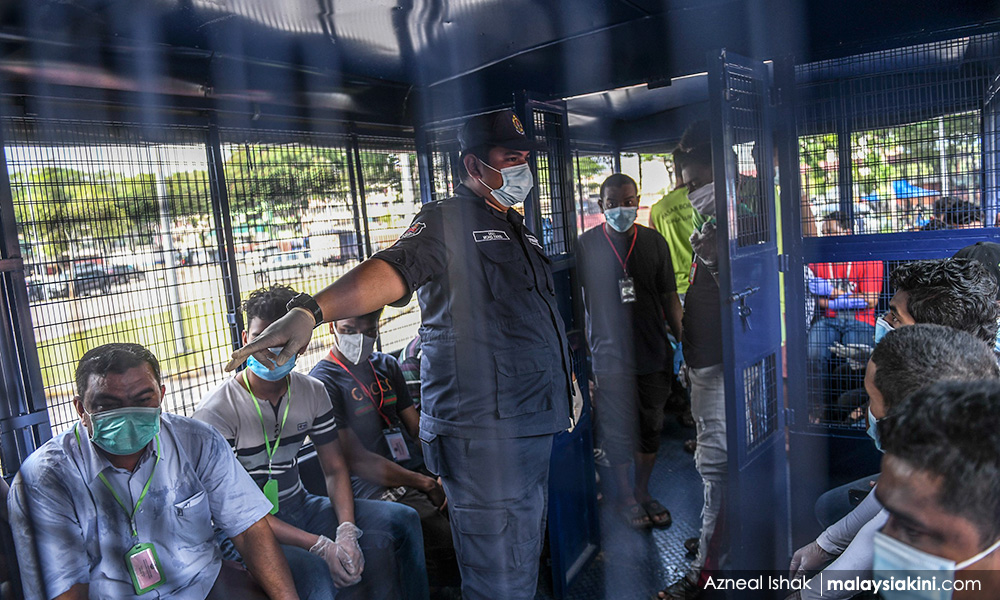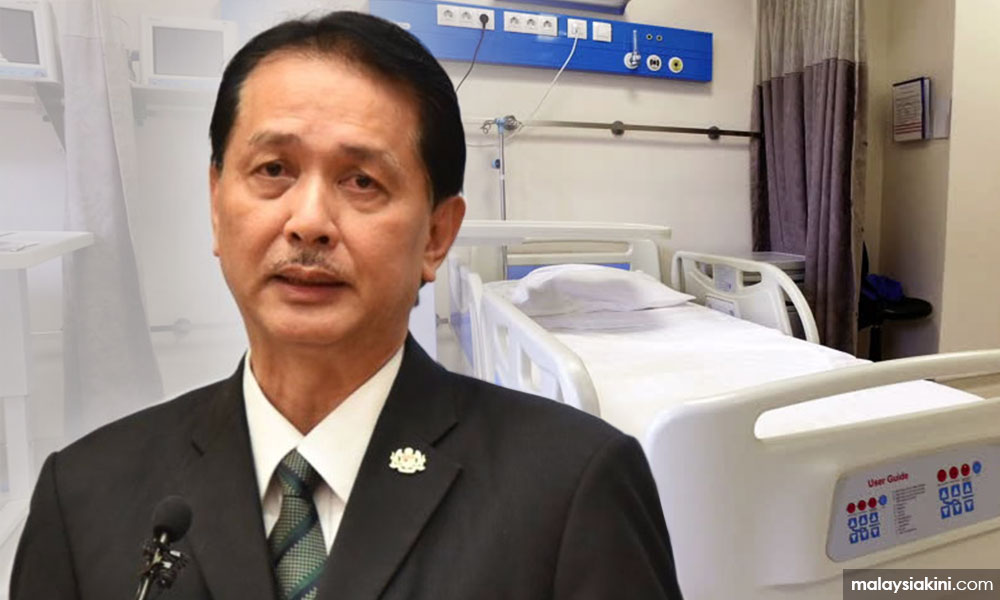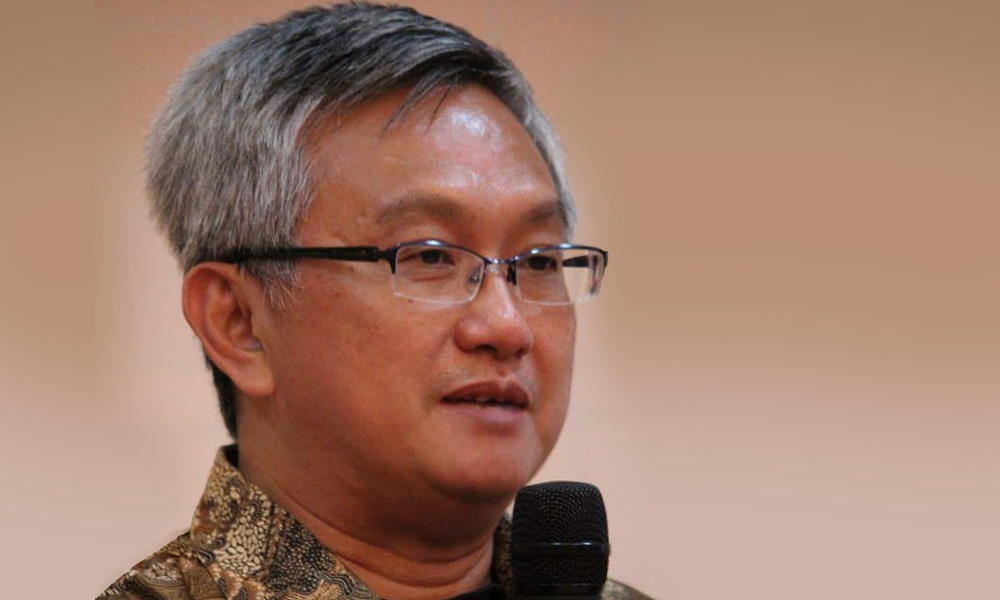Migrants still fear reprisal after vaccination, but some ready for the plunge
Abdullah Abbass, 25, wants to get the Covid-19 vaccine once it is available to everyone in Malaysia. But one thought is holding the Rohingya refugee back.
“I’m not afraid of the vaccine. I’m afraid I will be deported if I get it because I cannot go back to Myanmar,” he told Bernama through an interpreter.
On the other side of the Klang Valley at an old folks’ home, Jenny (not her real name), is the opposite.
The 36-year old undocumented worker from the Philippines does not want to take the vaccine but will probably have to as a condition of her employment.
“I’m afraid to get the vaccine, we are not sure (of the vaccine’s safety) yet. I’m scared of the side effects,” she said, adding she had read about it on social media.
Both arrived in Malaysia in 2014, one seeking safety, the other seeking a job. In the end, both may choose not to get the vaccine because of fear.
Health experts and community leaders are concerned that this fear may prevent migrants, who are most at risk of infection and spreading it, from getting immunised, thereby risking Malaysia’s efforts to attain herd immunity.
Old sins, long shadows
Malaysia aims to immunise 80 percent (at least 23.6 million) of adult residents in the country to achieve herd immunity. As such, it plans to make vaccines available free of charge for citizens and non-citizens alike under its National Covid-19 Immunisation Programme (NIP).
Technically, non-citizen residents will start getting their vaccines in Phase Three, slotted to begin in June, although undocumented migrants, the stateless and refugees will likely get their shot next year, towards the end of Phase Three of NIP. To encourage irregular migrants to come forward and get their shot, the government has been promising safe passage for them.

The coordinating minister for the Covid-19 Immunisation Task Force Khairy Jamaluddin Abu Bakar said they would reach out to community leaders, non-governmental organisations (NGOs), international rights groups and embassies. While public health experts and community and migrant group representatives laud the decision to vaccinate migrants for free, they also doubt the promises will be enough to convince migrants.
They pointed to how the government’s policy of safe passage – done to encourage Covid-19 testing among migrants last year – was reversed a month later.
Some 2,000 migrants, including some alleged asylum-seekers, were detained in immigration raids in several Covid-19 hotspots in the Klang Valley. The government had defended the move as a necessary way to contain Covid-19.
Dr Ahmad Faizal Mohd Perdaus, president of Mercy Malaysia, said the immigration raids had an immediate effect on their group’s work providing free testing to migrants.
“After a large number of undocumented workers were arrested, detained and some were deported, it kind of stopped the (momentum), kind of stopped the people who are undocumented from coming forward to be tested,” he said.
Ahmad Faizal now worries the same thing would happen with the vaccination efforts.
Many migrants Bernama talked to said they did not want to risk dealing with the authorities after what happened last year. A wrongly-documented foreign worker at a care facility said he wanted the vaccine so he would not have to worry when he went home to India.
“But I’m worried the government may take me (during vaccination) because (the) immigration (officers) ask so many questions and I cannot give the answers sometimes,” he said.
NGOs recently asked the government for more binding guarantees. Khairy, who is also Science, Technology and Innovation Minister, demurred and instead said Home Minister Hamzah Zainudin was aware of the concerns.

Although an official declaration of safe passage from the government may never come, there are signs that history may not repeat itself. Perhaps the best indicator that the safe passage policy would not be overturned this time came from Health director-general Dr Noor Hisham Abdullah in February.
Asked if undocumented migrants should be detained to aid the vaccination process, Noor Hisham said ‘no’, pointing out that many outbreaks that began in detention centres had spread to the community last year.
While safe passage pledges may help create a safe environment for migrants to get the vaccine, it does not address the issue of convincing migrants of the benefits and importance of getting the shot.
Pulling out all stops
Other than the fear of arrest and detention, any outreach to the migrant communities has to deal with the issue of vaccine safety as well as vaccine hesitancy. All migrants Bernama talked to had questions about the vaccine, including when the vaccines will be available, how they will be administered and who should take it.
While several were worried about being detained, a few are afraid of the side effects and possible adverse reactions, primarily driven by misinformation.
Thelma is a wrongly documented worker from the Philippines. Like her compatriot Jenny, she is afraid to take the vaccine after seeing a video of someone allegedly dying after getting the shot.
“I saw on Facebook, in the Philippines, this place which already got vaccines… like a 55-year-old man who felt weak and then collapsed,” she said. A search did not turn up anyone fitting the description of collapsing or dying after being vaccinated.
Ultimately, effective communication of accurate information is as important for migrants as the general population.
An official with an international migrants group, who declined to be named, said empowering community leaders, NGOs and other groups to reach out and talk to the communities they serve would help bridge the information gap.
“A lot of other people, including citizens, are afraid of the side-effects of the vaccine. But there is also lesser information that the migrant populations are maybe receiving in their native languages about the vaccine, so that’s another barrier,” she said.

Some NGOs and community leaders such as Rafik Shah Mohd Ismail, a community leader for Rohingya refugees in Selayang, have tentatively begun educating their charges.
Although the government has not announced the exact mechanism by which vaccinations would take place, Rafik said he was starting now as he needed to ensure his community understood the stakes.
“Before we do the registration, we have to give them the facts first. Accurate information about the vaccine. We know many are lacking in general knowledge because most of them never received a formal education,” he said, adding he was grateful Malaysia was willing to vaccinate refugees and other migrants for free.
While messaging on the benefits of vaccination for the self is important – such as not developing severe Covid-19 or dying from it – activists say there should also be a focus on the other positive effects of vaccinations.
Alex Ong, the country representative for Migrant Care, said on top of the scientific benefits of vaccination, the messaging should also address how the vaccine would help their lives to return to normal.
Abdullah agrees. He is choosing to take the Malaysian government‘s word and take his chances if it means being able to move on with his life and take care of his family.
“I’m resigned. I have to get the vaccine, but if I am detained after that, it will be up to God,” he said.
- Bernama
✍ Credit given to the original owner of this post : ☕ Malaysians Must Know the TRUTH
🌐 Hit This Link To Find Out More On Their Articles...🏄🏻♀️ Enjoy Surfing!




















Post a Comment